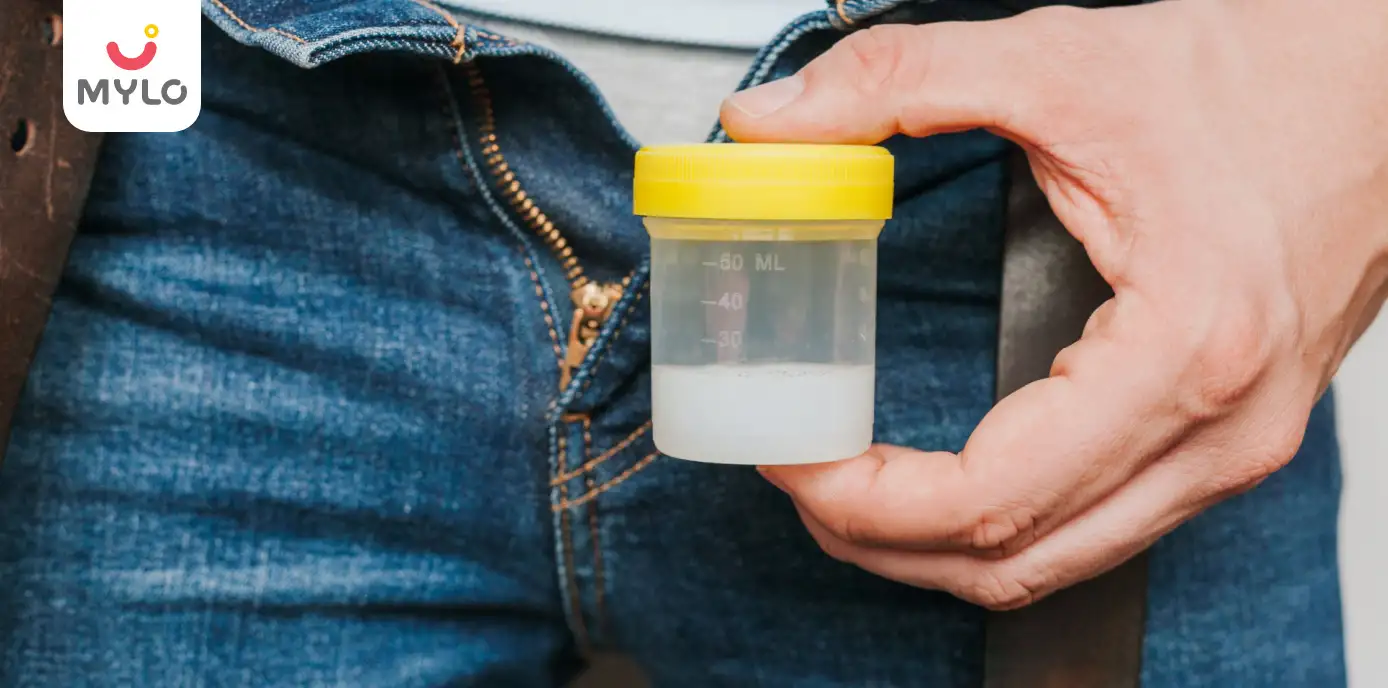Home

PCOS & PCOD

How to Get Regular Periods in PCOS: A Comprehensive Guide for Women
In this Article

PCOS & PCOD
How to Get Regular Periods in PCOS: A Comprehensive Guide for Women
Updated on 4 September 2023



Medically Reviewed by
Dr. Shruti Tanwar
C-section & gynae problems - MBBS| MS (OBS & Gynae)
View Profile

Navigating the challenges of Polycystic Ovary Syndrome (PCOS) can be an uphill battle for many women. One of the most frustrating aspects of this condition is irregular periods, which can disrupt daily life and cause emotional distress. If you're one of the countless women searching for answers on how to get regular periods in PCOS, you've come to the right place.
In this comprehensive guide, we will delve into the intricacies of PCOS and provide you with practical strategies and tips to help you achieve regular periods. Whether you're seeking natural remedies, medical interventions, or lifestyle changes, this article will equip you with the knowledge you need to take charge of your reproductive health.
What are the Causes of Irregular Periods in PCOS?
Before we understand how to regulate periods with PCOS, it’s important to understand the reasons behind menstrual irregularities in women with PCOS:
1. Hormonal Imbalance
PCOS is characterized by an imbalance in hormones, particularly an excess of androgens. This hormonal imbalance can disrupt the regular menstrual cycle and lead to irregular periods.
2. Anovulation
In PCOS, the ovaries often fail to release eggs regularly, resulting in anovulation. Without ovulation, the menstrual cycle is disrupted, leading to irregular or absent periods.
3. Insulin Resistance
Insulin resistance is commonly associated with PCOS. This condition affects the way the body processes glucose, leading to high levels of insulin in the blood. Insulin resistance can disrupt hormone levels, including those involved in menstrual regulation.
4. Obesity
Women with PCOS are more likely to be overweight or obese. Excess body fat can exacerbate hormonal imbalances and insulin resistance, further contributing to irregular periods.
5. Stress and Lifestyle Factors
Chronic stress, poor sleep, and unhealthy lifestyle habits can also contribute to irregular periods in PCOS. These factors can disrupt hormone production and regulation, leading to menstrual irregularities.
You may also like: PCOS Self Care: How to Nurture Your Body and Mind
How to Get Regular Periods in PCOS?
Now let us how to get periods in PCOS monthly:
1. Birth Control Pills
Oral contraceptive pills are commonly prescribed to regulate periods in women with PCOS. These pills contain synthetic hormones that help balance hormone levels and promote regular menstrual cycles.
2. Hormone Therapy
In some cases, hormone therapy may be recommended to regulate periods in PCOS. This may involve medications such as progestin or a combination of estrogen and progestin.
3. Metformin
Metformin is a medication often prescribed to manage insulin resistance in PCOS. By improving insulin sensitivity, it can help regulate hormone levels and promote regular periods.
4. Myo-inositol
Myo-inositol has been found to restore regular menstrual cycles in women with PCOS. By improving hormone balance and reducing insulin resistance, it helps regulate ovulation and promotes a healthy menstrual cycle.
Read More About : Myo-inositol
5. Weight Loss
For overweight or obese women with PCOS, weight loss can be beneficial in regulating periods. Losing excess weight can improve insulin sensitivity and hormone levels, leading to more regular menstrual cycles.
How to Get Periods Immediately in PCOS?
For women wondering how to induce periods in PCOS, here are some methods that may help induce periods immediately:
1. Progestin Therapy
Progestin is a synthetic hormone that can be prescribed to induce a period in women with PCOS. It mimics the effects of progesterone and can help trigger menstruation.
2. Herbal Remedies
Certain herbs, such as ginger, cinnamon, and parsley, are believed to have emmenagogue properties, meaning they can stimulate menstrual flow. However, it is essential to consult with a healthcare professional before trying any herbal remedies.
3. Exercise
Engaging in moderate-intensity exercise can help stimulate blood flow to the pelvic region and encourage menstruation. Activities such as walking, cycling, or yoga can be beneficial.
4. Heat Therapy
Applying heat to the abdominal area, such as using a hot water bottle or taking warm baths, can help relax the muscles and promote blood flow, potentially triggering a period.
5. Acupuncture
Acupuncture, a traditional Chinese medicine practice, involves inserting thin needles into specific points on the body. Some studies suggest that acupuncture can help regulate menstrual cycles in women with PCOS.
You may also like : Metformin for PCOS: How This Medication Can Help Regulate Hormonal Imbalances
How to Get Regular Periods with PCOS Naturally?
If you’re wondering how to get regular periods naturally with PCOS, then here are some tips you may find beneficial:
1. Dietary Changes
A healthy, balanced diet can support hormone regulation and promote regular periods in PCOS. Focus on consuming whole foods, high in fiber, lean proteins, and healthy fats. Limit processed foods, sugar, and refined carbohydrates.
2. Stress Management
Chronic stress can disrupt hormonal balance and contribute to irregular periods. Incorporate stress management techniques such as meditation, deep breathing exercises, or Yoga into your daily routine.
3. Herbal Teas
Some herbal teas, such as PCOS tea made with natural ingredients like Shatavari, Manjistha, Shankh Pushpi and Chamomile are believed to support hormonal balance and menstrual regularity.
4. Adequate Sleep
Prioritize getting enough sleep each night, as sleep deprivation can negatively impact hormone production and regulation. Aim for 7-9 hours of quality sleep.
5. Maintain a Healthy Weight
Maintaining a healthy weight can help regulate periods in PCOS. Focus on achieving a weight within a healthy range through a combination of a balanced diet and regular exercise.
You may also like : How to Get Pregnant with PCOS: The Ultimate Guide for Women
FAQs
1. How long can PCOS delay your period?
PCOS can cause significant delays in periods. Some women with PCOS may experience periods that occur several months apart or even skip periods altogether.
2. How to induce periods in PCOS?
Inducing periods in PCOS can be done through various methods such as progestin therapy, herbal remedies, exercise, heat therapy, or acupuncture. It is essential to consult with a healthcare professional before attempting any of these methods.
Final Thoughts
Understanding how to get regular periods in PCOS requires a comprehensive approach that addresses the underlying hormonal imbalances and lifestyle factors. While medical interventions such as birth control pills or hormone therapy may be necessary in some cases, many natural remedies can also promote regular periods. By adopting a healthy lifestyle, managing stress, and seeking guidance from healthcare professionals, women with PCOS can achieve more regular menstrual cycles and improve their overall well-being.
References
1. Reiser E, Lanbach J, Böttcher B, Toth B. (2022). Non-Hormonal Treatment Options for Regulation of Menstrual Cycle in Adolescents with PCOS. J Clin Med.
2. Zhang Y, Guo X, Ma S, Ma H, Li H, Wang Y, Qin Z, Wu X, Han Y, Han Y. (2021). The Treatment with Complementary and Alternative Traditional Chinese Medicine for Menstrual Disorders with Polycystic Ovary Syndrome. Evid Based Complement Alternat Med.
3. Harris HR, Titus LJ, Cramer DW, Terry KL. (2017). Long and irregular menstrual cycles, polycystic ovary syndrome, and ovarian cancer risk in a population-based case-control study. Int J Cancer.





Medically Reviewed by
Dr. Shruti Tanwar
C-section & gynae problems - MBBS| MS (OBS & Gynae)
View Profile


Written by
Anupama Chadha
Anupama Chadha, born and raised in Delhi is a content writer who has written extensively for industries such as HR, Healthcare, Finance, Retail and Tech.
Read MoreGet baby's diet chart, and growth tips

Related Articles
Related Questions
Hello frnds..still no pain...doctor said head fix nhi hua hai..bt vagina me pain hai aur back pain bhi... anyone having same issues??

Kon kon c chije aisi hai jo pregnancy mei gas acidity jalan karti hain... Koi btayega plz bcz mujhe aksar khane ke baad hi samagh aata hai ki is chij se gas acidity jalan ho gyi hai. Please share your knowledge

I am 13 week pregnancy. Anyone having Storione-xt tablet. It better to have morning or night ???

Hlo to be moms....i hv a query...in my 9.5 wk i feel body joint pain like in ankle, knee, wrist, shoulder, toes....pain intensity is high...i cnt sleep....what should i do pls help....cn i cosult my doc.

Influenza and boostrix injection kisiko laga hai kya 8 month pregnancy me and q lagta hai ye plz reply me

RECENTLY PUBLISHED ARTICLES
our most recent articles

Ayurveda & Homeopathy
PCOS Treatment in Homeopathy: The Ultimate Guide to Natural Remedies

Ayurveda & Homeopathy
Manjistha: Ayurveda's Best-Kept Secret for Health and Beauty

PCOS & PCOD
Metformin for PCOS: How This Medication Can Help Regulate Hormonal Imbalances

Conception
5 Tips on How to Get Pregnant When You Are Fat

Medications
Do Antibiotics Affect Fertility: Debunking Common Myths and Misconceptions

Fertility
Disadvantages of Releasing Sperm Daily: Debunking Common Myths
- Varicocele Surgery Cost: What You Need to Know Before You Go Under the Knife
- Testicular Pain: Don't Ignore, Know When to Seek Medical Attention
- PCOS with Regular Periods: Understanding the Symptoms and Implications
- Bulky Uterus: What You Need to Know About this Common Gynecological Issue
- Mylo Baby Wipes Review
- PCOS Treatment in Ayurveda: The Ultimate Guide to Natural Treatment Options
- PCOS Acne: The Ultimate Guide to Causes, Treatment and Management
- Maggi in Pregnancy: Is It Safe to Enjoy Your Favorite Instant Noodles?
- Oats During Pregnancy: A Winning Combination for Both Mom and Baby
- Types of IVF, Their Benefits and Side Effects Everything You Need to Know..
- How to Sterilize Baby Bottles: The Ultimate Step-by-Step Tutorial
- What to eat when trying to conceive
- White Discharge After IUI: Is It Normal & When to See a Doctor
- Diet & Exercises Your Wife Can Follow During Pregnancy


AWARDS AND RECOGNITION

Mylo wins Forbes D2C Disruptor award

Mylo wins The Economic Times Promising Brands 2022
AS SEEN IN

- Mylo Care: Effective and science-backed personal care and wellness solutions for a joyful you.
- Mylo Baby: Science-backed, gentle and effective personal care & hygiene range for your little one.
- Mylo Community: Trusted and empathetic community of 10mn+ parents and experts.
Product Categories
baby carrier | baby soap | baby wipes | stretch marks cream | baby cream | baby shampoo | baby massage oil | baby hair oil | stretch marks oil | baby body wash | baby powder | baby lotion | diaper rash cream | newborn diapers | teether | baby kajal | baby diapers | cloth diapers |




